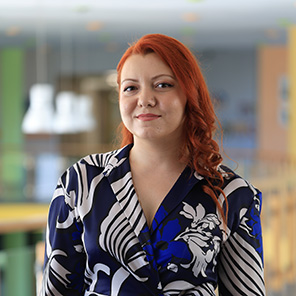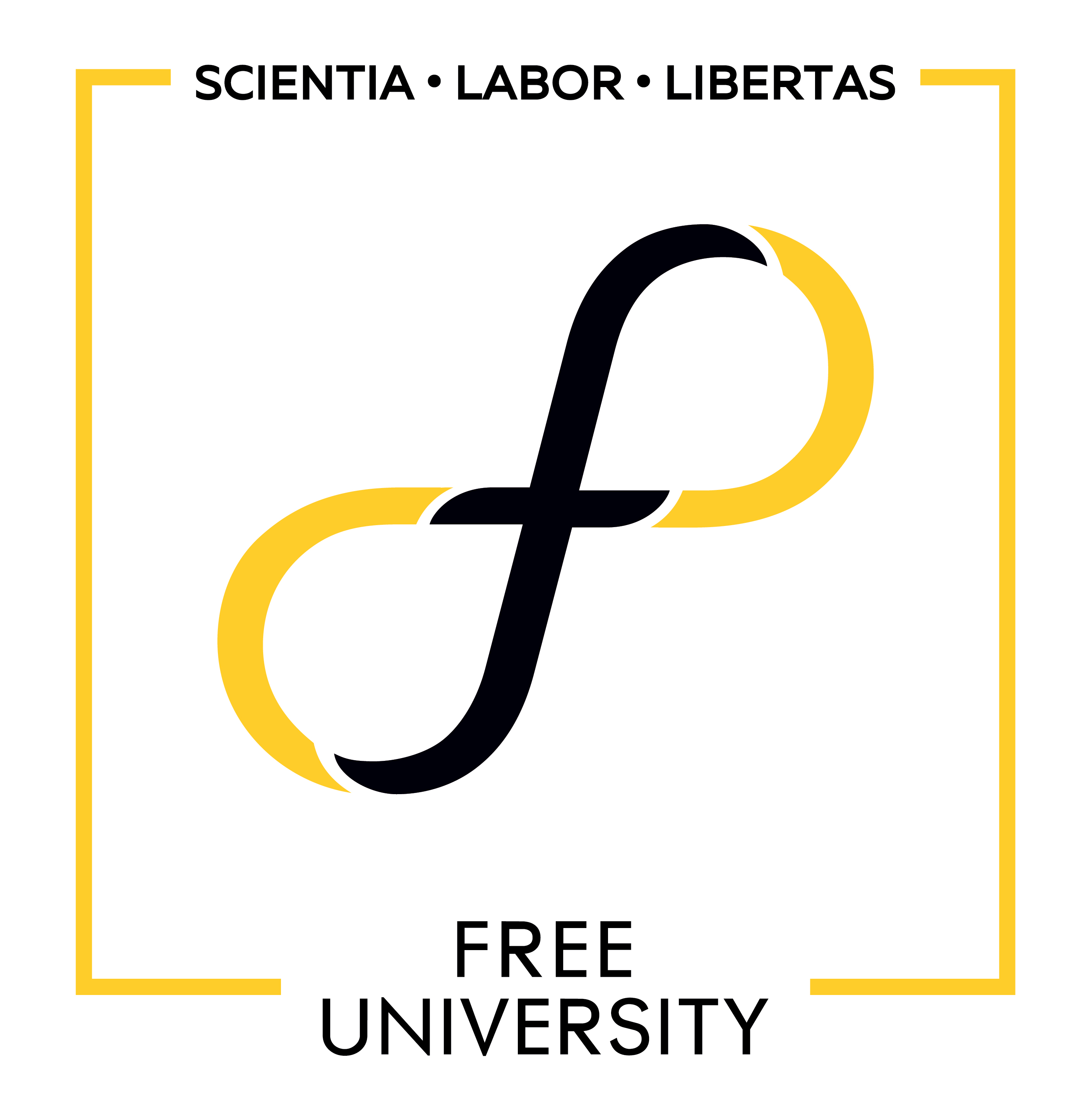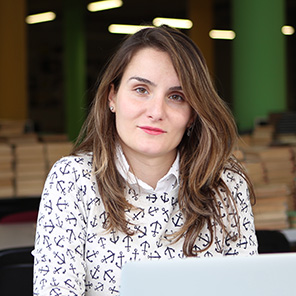GRADUATE SCHOOL OF SOCIAL AND NATURAL SCIENCES
Joint PhD Program in Chemistry - Description
The Joint PhD Program in Chemistry is implemented by the Free University of Tbilisi (Graduate School of Social and Natural Sciences) and the Agricultural University of Georgia (School of Natural Sciences and Biotechnology).
The Free University of Tbilisi and the Agricultural University of Georgia with their combined resources create an ideal environment
for conducting research and educational activities in accordance with international standards, as well as for fostering interdisciplinary studies.
In order to promote interdisciplinary studies, the program entails collaboration with other programs of the Free University of Tbilisi and the Agricultural University of Georgia, namely the PhD programs in Biology, Physics, Engineering and Agricultural Sciences. The program also envisages cooperation with the Free University of Tbilisi Research Institute of Cognitive Neurosciences and the Agricultural University of Georgia's Institute of Biochemistry and Biotechnology, Institute of Molecular Genetics, Institute of Chemistry and Molecular Engineering, Institute of Entomology and relevant laboratories.
This cooperation includes participation in joint research activities, implementation of joint international research, organization of research seminars and involvement of students and professors in international scientific projects.
The program aims to cultivate essential, overarching skills among PhD candidates and foster an academic environment conducive to producing innovative research and generating new knowledge of international scientific significance.
This principle is reflected in the individualized approach of the program, which is clearly expressed in the structure and content of the curriculum as well as in the specifics of the educational planning process.
Upon successful completion of the PhD program, the graduate is awarded the qualification - Doctor of Chemistry. The duration of the program is a minimum of 3 years.
As PhD Program in Chemistry is implemented by the Free University of Tbilisi and the Agricultural University of Georgia, the academic staff of both universities are involved in the management of the programs. Professor Revaz Korashvili of the Agricultural University of Georgia is head of the PhD Program in Chemistry.
CURRICULUM
The curriculum consists of two components: an educational component and a research component. The educational component entails 40 credits.
The educational component consists of the following courses:
- Academic Writing for PhD Students
- Preparation of Dissertation Research
- Quantitative Research Methods
- Scientific Project Management
- Teaching in the Higher Education System
- Doctoral Seminars
On the one hand, the educational component consists of courses aimed to equip PhD students with the methodological tools and skills necessary for planning and implementing dissertation research.
On the other hand, the educational component consists of courses aimed to deepen knowledge in relevant fields and subfields of the PhD student's dissertation topic and involve in-depth processing of relevant scientific literature. Doctoral Seminars (mandatory and optional) are educational components tailored to the student's individual interests, which, in parallel to the work with their advisor and individual research, allows PhD students to delve into specific fields, subfields, or interdisciplinary problems (depending on the topic's specificity), process literature, deepen knowledge, and develop a conceptual and methodological framework relevant to the research topic.
The research component entails the PhD students seeking and familiarizing themselves with scientific literature relevant to their dissertation topic, reviewing existing knowledge, forming and testing hypotheses, collecting and analyzing data, and executing, presenting and defending their dissertations. The research component also includes mandatory publication.
Within the framework of the research component, the program ensures that PhD students have continuous interaction with specialists across various fields and subfields and constantly receive feedback from professors of their and/or adjacent fields.
HOW TO APPLY TO THE PHD PROGRAM IN CHEMISTRY?
Applicants for the PhD Program in Chemistry will need the following documents to complete the application:
- CV
- Copy of diplomas (Bachelor’s and Master’s)
- English language certificate (if applicable) and any other certificate that may be relevant to the application (these documents should be uploaded in PDF file format only)
- Copy of ID card (pdf, png or jpg)
- Photo - png or jpg format
ADVICE TO APPLICANTS
The cover letter and the research project are the most important parts of the PhD application. The committee that reviews the applications will pay attention to the following:
- Clarity of the research proposal
- Scientific relevance of the research question
- Methodological coherence and feasibility of the proposed dissertation research
ABOUT THE GRADUATE SCHOOL OF SOCIAL AND NATURAL SCIENCES
The Free University Graduate School of Social and Natural Sciences is a key structural element where scientific-research activities are integrated into the educational process.
The Graduate School combines the theory-heavy Master's and PhD programs of the Free University of Tbilisi, which are focused on the development of research and the creation of new scientific knowledge. These programs are:
- Master’s Program in Social Sciences
- PhD Program in Social Sciences
- Joint Master's Program in Natural Sciences with the Agricultural University of Georgia
- Joint PhD Program in Biology with the Agricultural University of Georgia
- Joint PhD Program in Chemistry with the Agricultural University of Georgia
- Joint PhD Program in Physics with the Agricultural University of Georgia
As the Master's Program in Natural Sciences, PhD Program in Chemistry, PhD Program in Biology and PhD Program in Physics are implemented by the Free University of Tbilisi and the Agricultural University of Georgia, the academic staff of both universities are involved in the management of the programs:
- Professor Giorgi Jorjadze of the Free University of Tbilisi is head of the physics component of the Master's Program in Natural Sciences and the PhD Program in Physics.
- Professor Nina Kulikova of the Agricultural University of Georgia is head of the biology component of the Master's Program in Natural Sciences.
- Professor Giorgi Muskhelishvili of the Agricultural University of Georgia is head of the PhD Program in Biology.
- Professor Revaz Korashvili of the Agricultural University of Georgia is head of the chemistry component of the Master's Program in Natural Sciences and the PhD Program in Chemistry.
The Graduate School's concept is inspired by the Anglo-Saxon model, a departure from the typical approach applied in Georgia. Its operations strongly embody the Free University of Tbilisi's research mission, adhering to three core principles of interdisciplinarity, applicability and internationality, both structurally and in terms of content.
The curricula of the programs are designed in such a way as to facilitate the creation of new scientific knowledge within the framework of individual research endeavors. This aspiration implies:
- An individualized approach to research
- An emphasis on interdisciplinarity and cross-discipline methodological frameworks
- The creation of valuable and original knowledge that meets international academic standards (as opposed to simply adapting existing paradigms to local contexts)
The structure of the PhD programs is particularly conducive to interdisciplinary as well as multidisciplinary and cross-disciplinary research. It achieves this goal through several institutionalized mechanisms:
- Committee compositions based on the principle of interdisciplinarity
- International collaborations
- Methodological concept of the curricula
The aspiration to generate interdisciplinary and original knowledge is evident at various stages of the operation of PhD programs:
- During the admission process for PhD programs, where candidates are required to submit research proposals demonstrating originality. Admission decisions are based on evaluations by members of the Dissertation Council.
- Throughout the implementation of the research component of the curriculum, during which PhD students present their work to a committee for evaluation at each stage of research (on average twice per semester). The committee assesses the research work/activities based on international scientific standards.
- Dissertation Committees may consist of Dissertation Council members and invited specialists. The committees created for admissions to PhD programs and for the evaluation of the research component are always assembled taking into account the principle of interdisciplinarity.
Dean
Coordinator





